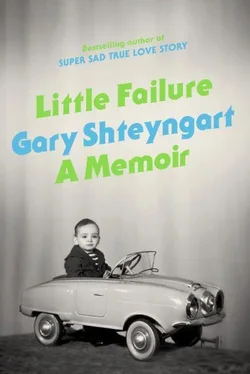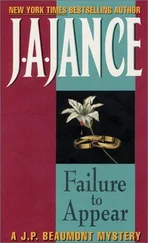In my hotel room, with my parents just a floor above me, I put my head to my pillow and think of my wife. I think of the warmth of her. I think of the relative silence of her own immigrant family, the silence that I crave. My wife. Even though I am “the writer,” she reads more than I do. She folds the pages of the books she reads when she wants to remember something important. Her favorite books are accordions, testaments to an endless search for meaning.
I think of my mother and father. Of their constant anxiety. But their anxiety means they still want to live. A year shy of forty, I feel my life entering its second half. I feel my life folding up. I sense the start of that great long leave-taking. I think of myself on the subway platform at Union Square. I am invisible, just a short obstacle others have to get around. Sometimes I wonder: Am I already gone? And then I think of my wife and I feel the whoosh of the number 6 train, the presence of others, the life still within me.
Why did he tell me this today?

The Admiralty building on the banks of the Neva River, headquarters of the Russian navy, has been built in the same loud Empire style as the hospital where my father spent part of his life. The Admiralty, a kind of early-nineteenth-century skyscraper, is topped by a gilded spire itself topped by a small sail warship, which appears regularly on local souvenirs and whose platonic shape delighted me as a child, a golden addendum to the warships in the Chesme Church. To the southwest of the Admiralty building lies the vast central Admiral-teiskii Rayon, a district of initial grandeur and increasing shabbiness. This is where my mother hails from.
My mother studied and later taught piano. I believe the reverence of music she shared with my opera-obsessed father allowed these two dissimilar people to fall in love. The story of my mother’s introduction to music is slightly different from the story of my first encounter with words at the behest of her mother, Grandmother Galya.
“When I was five,” my mother says as we exchange the colonnaded riverbanks and canals for the shawarma-reeking depths of her neighborhood, “my father bought me a balalaika that cost forty rubles. This was the last money we had and it was supposed to be used for food. My mother [Grandmother Galya] took the balalaika and smashed it against the wall of our apartment. I started to cry. My mother comforted me by saying, ‘I know you’re crying not because I smashed the balalaika but because you can see how upset I am. You’re very sensitive.’ ”
My mother is changing history. She is making her balalaika-smashing mother into a heroine. Does she want me to do the same for her? Is that what good children do for their parents? What about good writers?
I think back to the Kiev-style cutlet she sold me when I had graduated from Oberlin. I see mother’s laughing face as she puts the twenty-dollar bill she’s inveigled out of me in the pocket of her pink pullover. She is happy. Haggling with her son is fun, especially since he always loses. At money matters he is also a failure. And she is laughing because she can feel that part of this must be a joke. She understands the absurdity of the moment. She will often begin an anecdote with the words “Guys, you want to laugh?” And then she will laugh herself as if to demonstrate what it’s all about.
She is laughing. But is she sad? Is part of her sad? What is it like to be her at the moment she takes my money? What does it feel like to sell your broke son a horrible piece of chicken at retail? How many years must pass before I feel sad for her? Is this the moment? Is this why I brought them back here?
The balalaika smashes against the wall. The five-year-old girl begins to cry. And then, here in the present, the sound of a violin fills the street. We are approaching the college where the post-smashed-balalaika phase of my mother’s musical education took place. My mother poses for the camera mock-solemnly and gives it a four-finger pioneer’s salute. In the lobby a plaque commemorates alumni lost in the Second World War. NO ONE IS FORGOTTEN, it says. Next to the plaque are the usual bearded luminaries of the nineteenth century and next to the luminaries stands a new ATM machine. An incredibly Russian-looking boy with several layers of disheveled blond hair and a perfect potato nose is hitting the accordion pretty hard.
I can see the immediate disappointment on my mother’s face, the sadness of return, the letdown of memory. “Everything used to shine around here,” she says. “Now everything looks so unkempt.”
“There’s a fine stink here,” my father says, screwing up his Americanized nose at the produce of so many armpits.
“The first time I came in here, I heard a girl playing the piano,” my mother says. “I nearly dropped. I said to my father, ‘I want to study here! I will study here.’ And I was accepted. No one expected that of me. Stalin spent a lot of money on this stuff. He loved music.”

We trudge out of the music school and toward the distant Pryazhka River. “Why are all the windows boarded up?” my mother asks, as we approach the house where she grew up. SALE, a sign says in English. APARTMENTS, 228 METERS. “Look, they’ve set everything on fire!” Indeed, one of the windows has been blown out, the surrounding frame charred black.
My mother looks around the building’s ruined courtyard uncertainly. “Petya Zabaklitski from our class, he lived in that entryway over there, every day he would run ahead and wait for me. And whenever I walked home he would shout, ‘Yasnitskaya [my mother’s maiden name] the Jewess is coming. Yasnitskaya the Jewess is coming!’ This was the first sorrow of my life.”

My father grew up in the village of Olgino, northwest of the city center in the so-called resort area of Petersburg, which hugs the northern banks of the Gulf of Finland. Several redbrick mafioso-style estates, their boundary walls sprinkled with security cameras, have appeared along its rutted streets, but Olgino still feels like a half-wrecked semi-rural neighborhood moored in some failing periphery. We could be in Michigan or Sicily or North Africa or Pakistan. Only the weather betrays our latitude.
Today is cold and rainy, but the village is swaddled in the unkempt greenery which my father is clearly delighted to see. We are approaching a ramshackle green house built in some indeterminate Soviet style of rural housing, New England barn meets Russian izba meets instant decay.
“Here would pass a herd of cows,” he says. “In the morning I would have to push out our cow, Rosa, so that she would go into the forest with the other cows. There was a shepherd with a cattle prod. Oy, my heart is starting to jump!”
There is laughter coming out from under his baseball cap. The snow-white goatee is mirthful. He speaks without pause. “Our house was one of the biggest houses, fifteen-twenty families lived in it. Here there were little garden plots.” We walk by a vast rotting woodpile. “Here was our veranda.” We walk by boarded-up windows. “Here we planted flowers.” A collapsing brick shack sheltering an old Suzuki four-by-four. “Here Aunt Sonya had a little barn, sheep, pigs, cows. We had a good warm barn, you could keep a cow or a piglet there in winter. Here was the outhouse. Always tons of shit there. Frozen shit in the winter. Here lived a girl named Gelya, when boys my age or older would see her we’d always shout ‘Gelya, opa ! Gelya, opa !’ And she would laugh.” He makes a humping motion at the invisible Gelya.
Читать дальше













